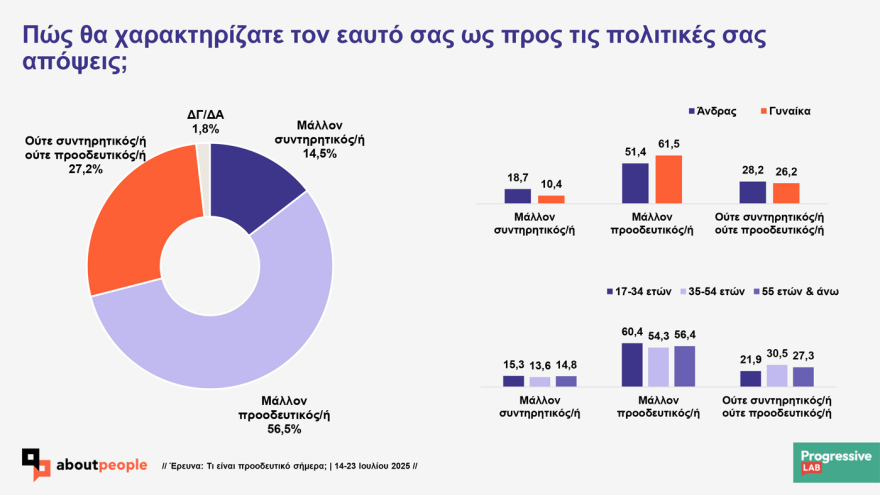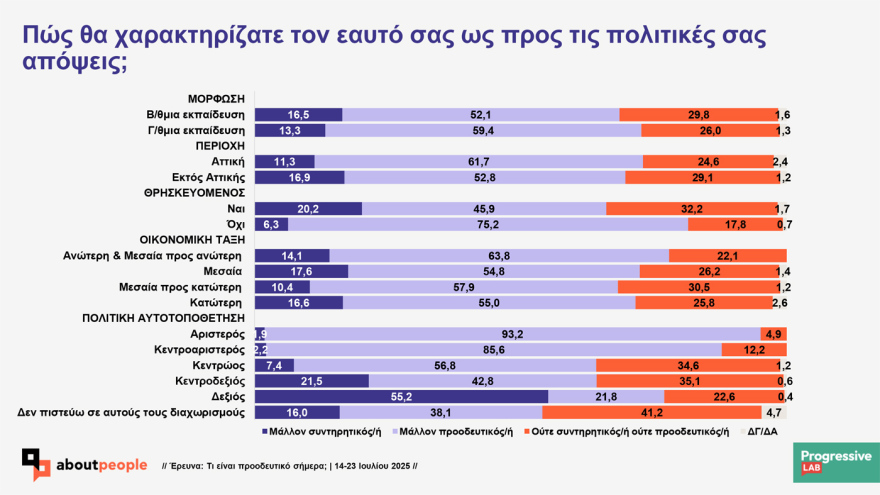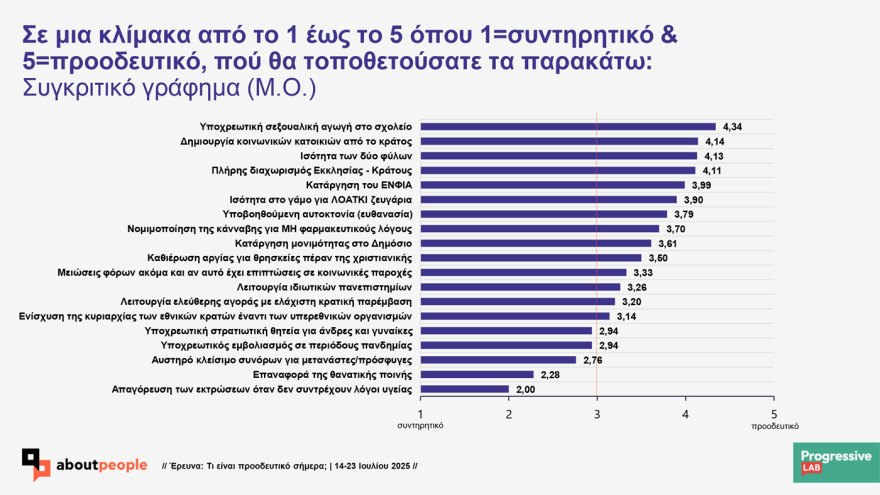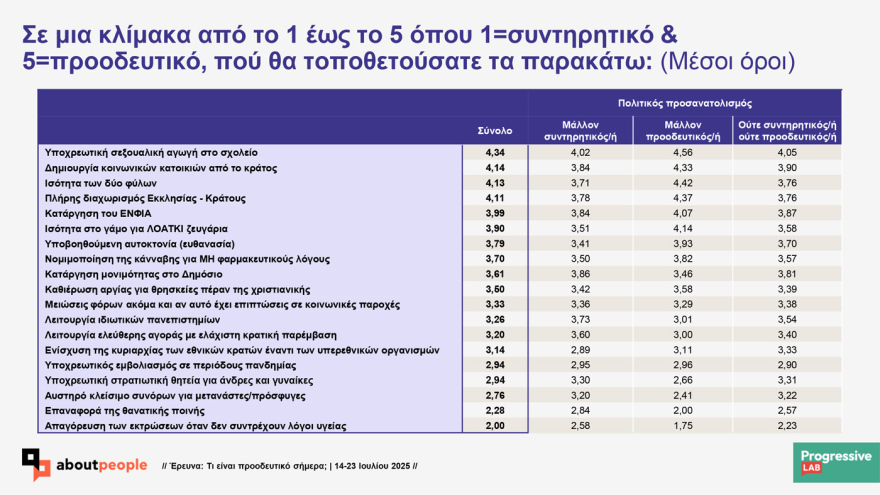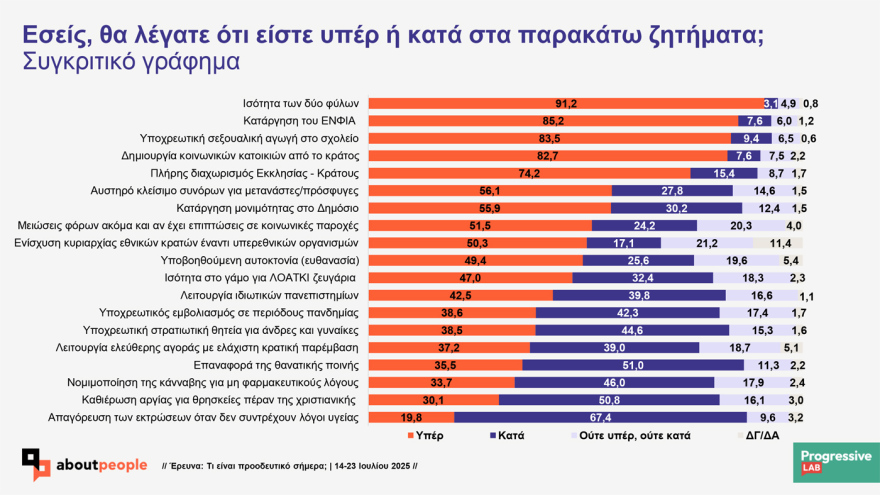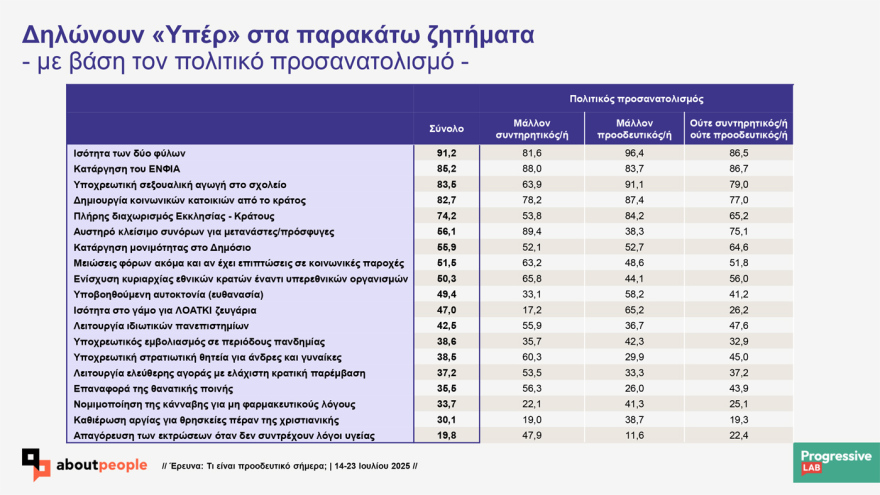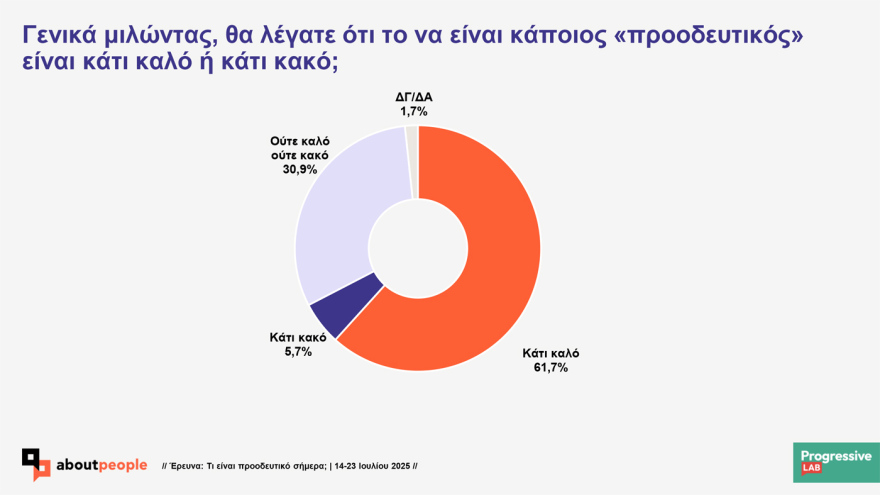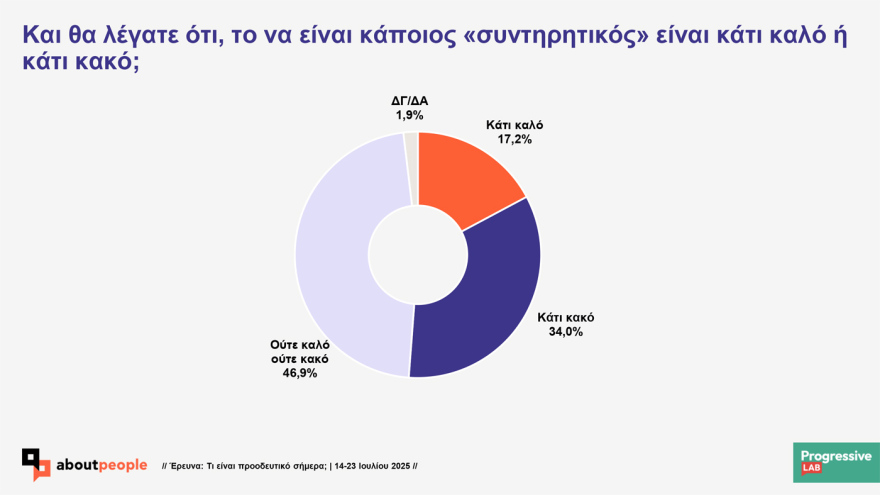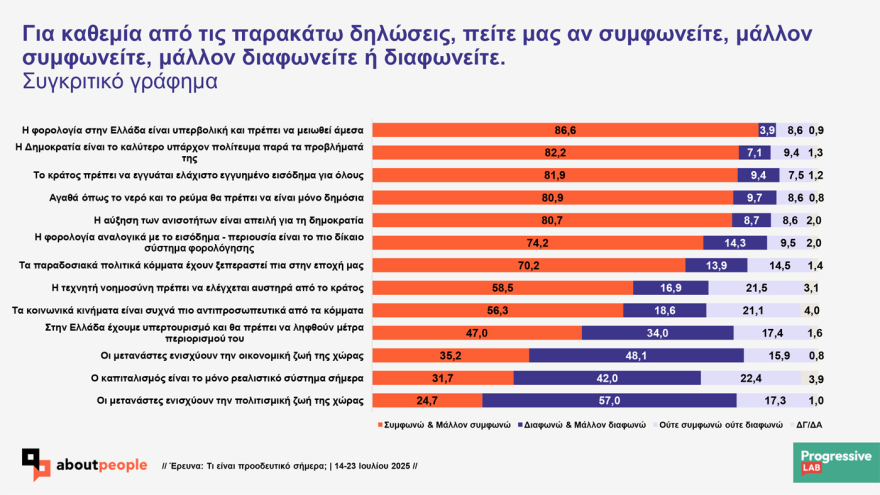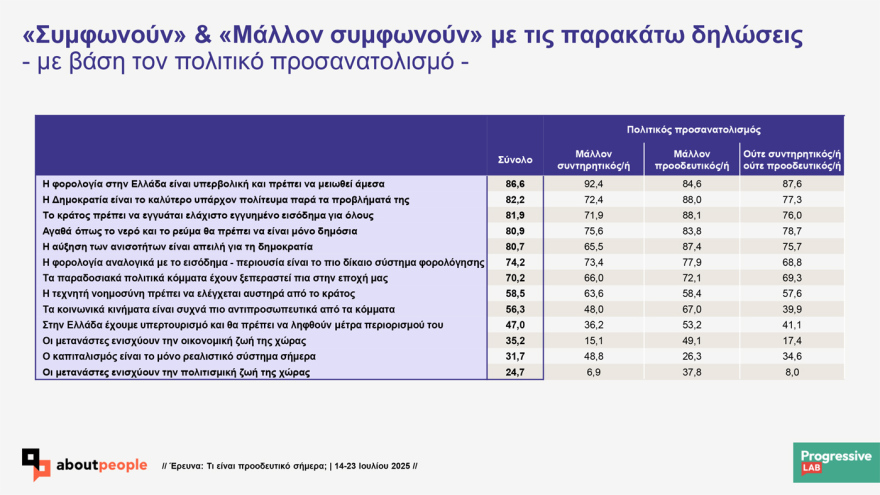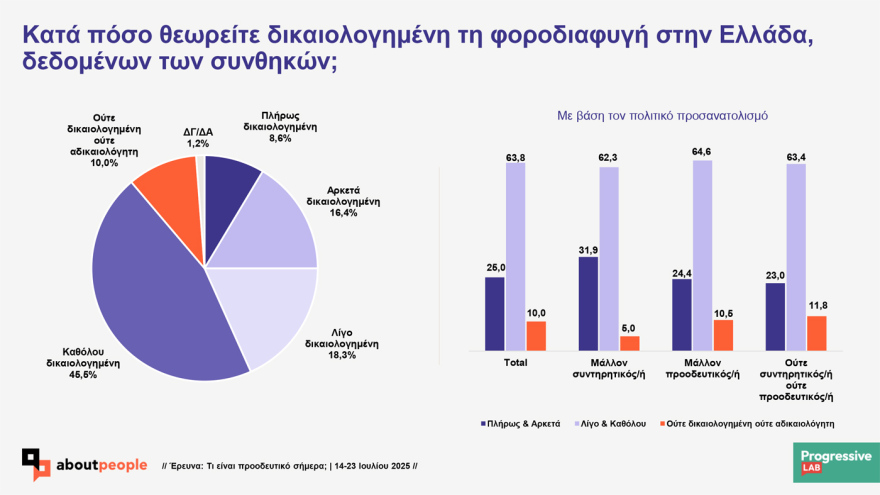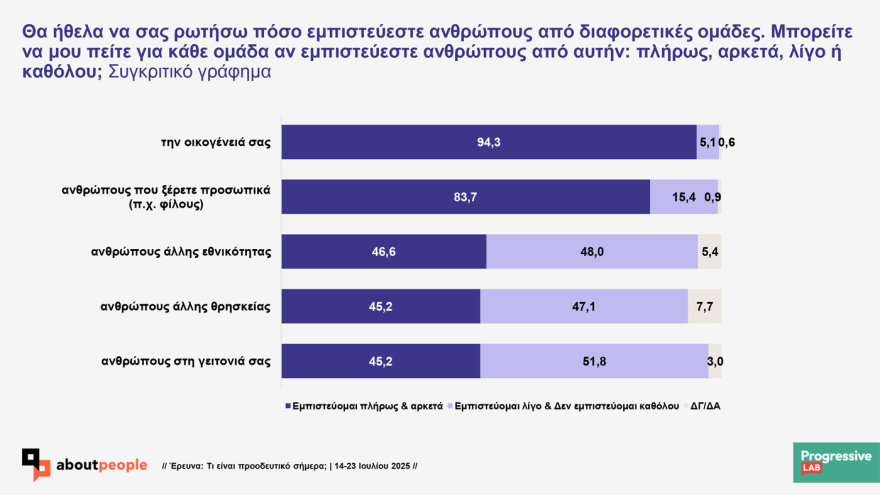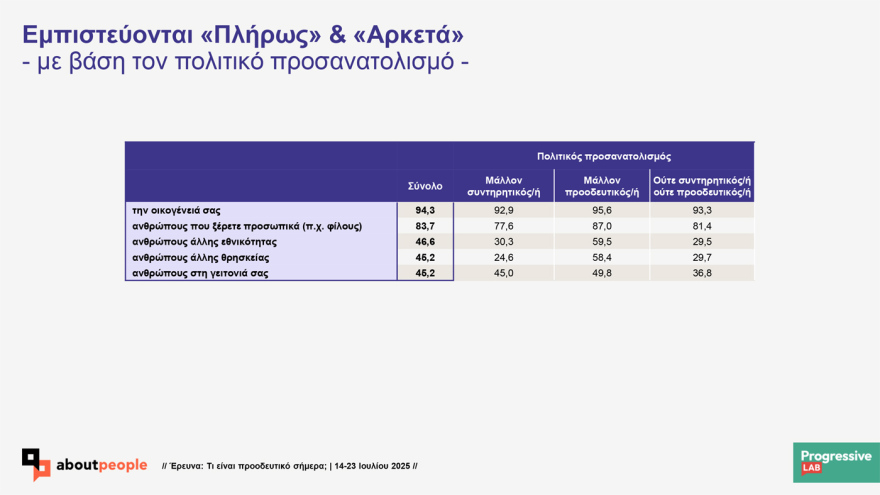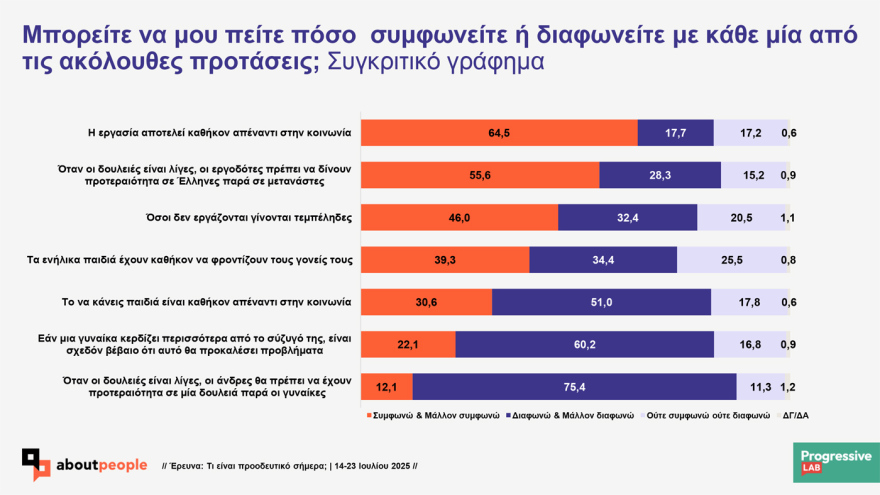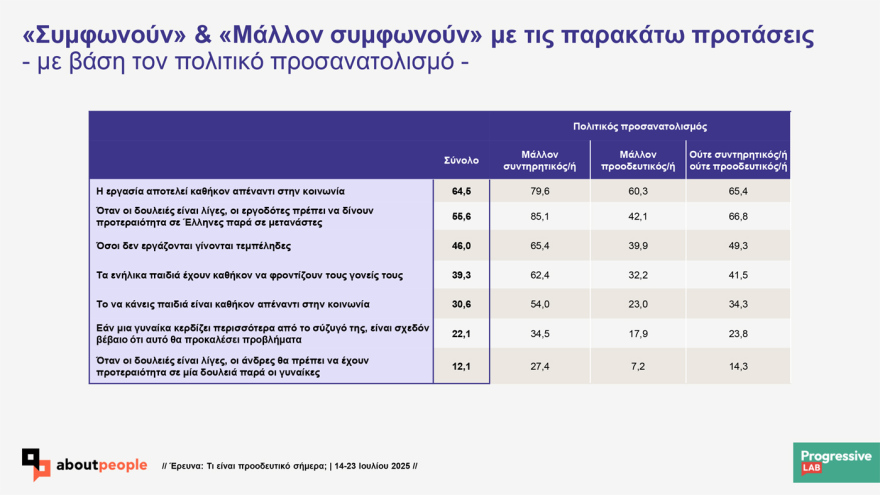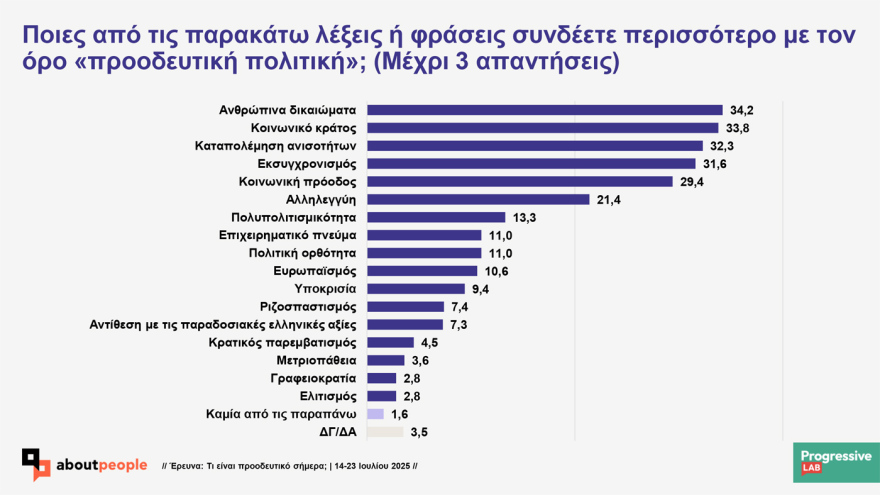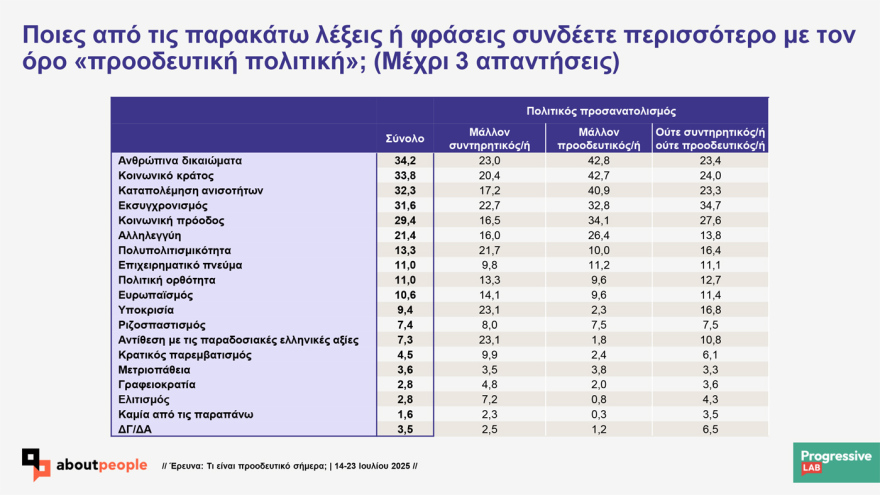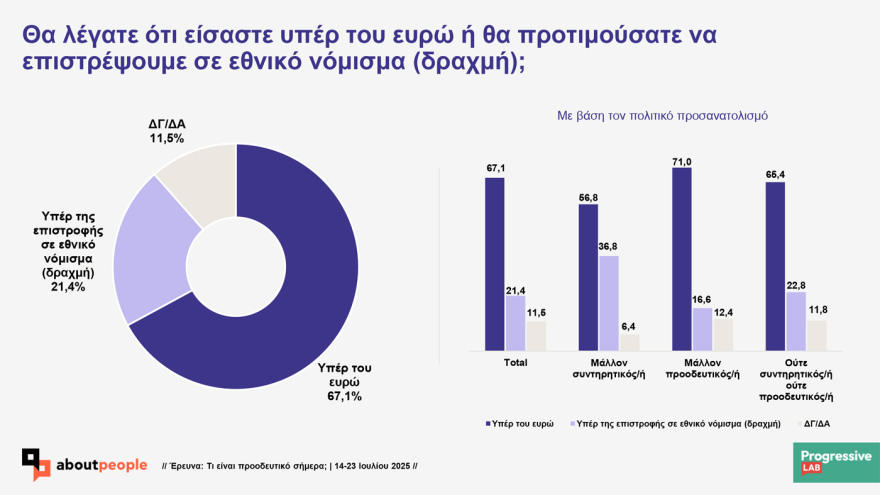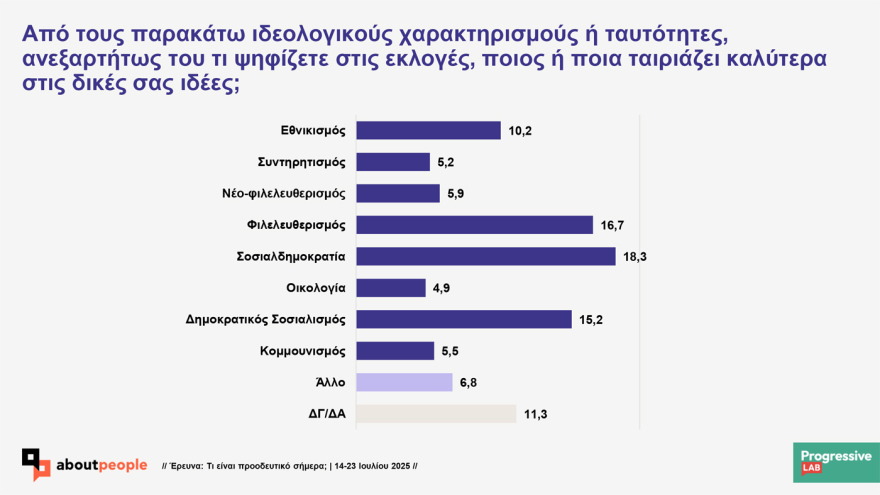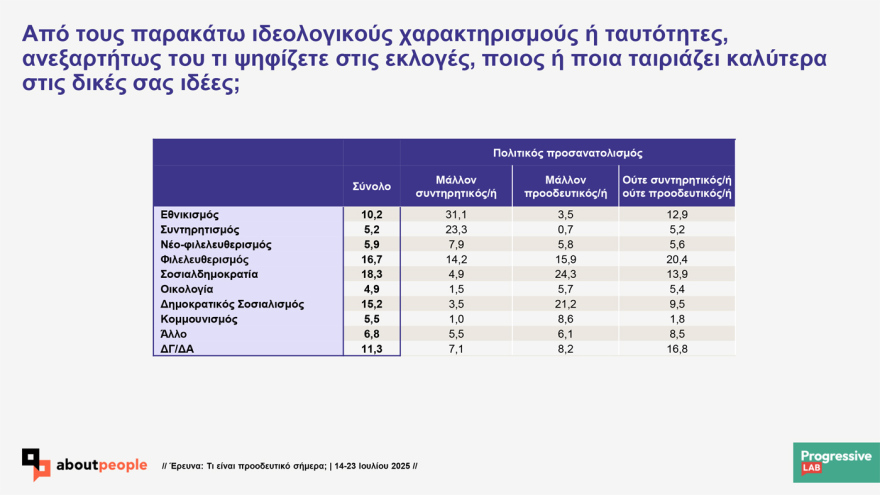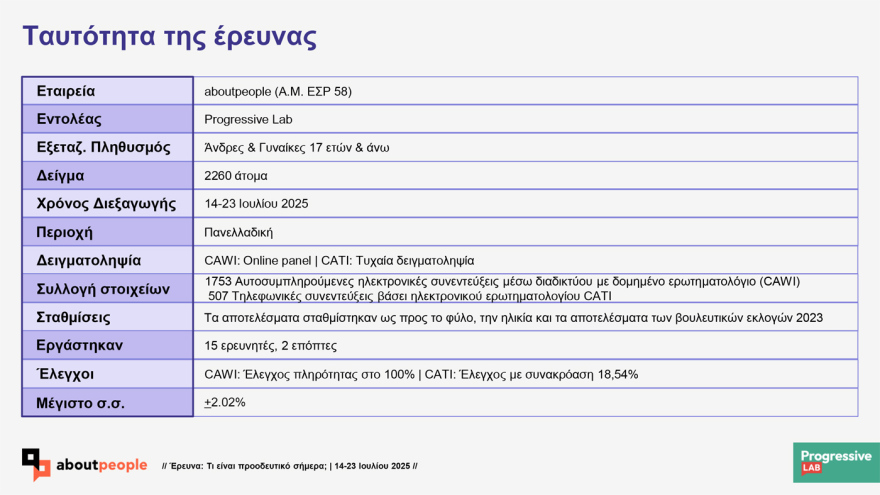The results of his first research are presented by the Progressive Lab, in an effort to contribute to the dialogue on “what is progressive today” and the drawing of similar conclusions.
Progressive Lab’s first survey conducted by Aboutpeople in a sample of 2260 people over 17 from July 14 to 23, answers the question “what is considered progressive today”, while shed light on the profile of those who self -characteristics.
The profile of progressives:
56.5% of respondents identify themselves as “rather progressive”. Their social-journalistic profile is made up of a greater proportion of women, from younger ages, by high-education people, mainly in Attica, they are non-religious, as well as people in the middle and upper economic class. Politically, they are mainly self -directed left or center -left. In general, the concept of “progressive” is positively evaluated by the majority of respondents (61.7%), while only 5.7% consider it negative and the remaining 30.9% has a neutral attitude. On the contrary, the designation “conservative” has a more negative tone: 34% consider it negative, 17.2% positive and almost half (46.9%) adopt a neutral attitude.
What is progressive today?
Higher averages on a scale from 1 to 5 on what is considered progressive were recorded in compulsory sexual education at school (4.34), in the creation of social housing by the state (4.14), in gender equality (4,13) and in complete separation of church -state (4,11). On the contrary, the reinstatement of the death penalty (2.28) and the ban on abortion without medical reason (2.00) were evaluated as more conservative positions.
On the same issues, in the “in favor” or “against” dilemma, the majority is in favor of gender equality (91.2%), abolition of ENFIA (85.2%), compulsory sexual education at school (83.5%) and social housing (82.7%). Lower the reinstatement of the death penalty (35.5%), the legalization of cannabis for non -pharmaceutical reasons (33.7%), the establishment of religions beyond Christian (30.1%) and the ban on abortions when there are no health reasons (19.8%).
The taxation
86.6% of the general public agrees or rather agrees that taxation in Greece is excessive and should be reduced immediately, while in rather progressives this figure is 84.6%. 82.2% of the total consider democracy the best government despite its problems, with 88% of the rather progressives agreeing with this position. 81.9% of the total argue that the state should secure a minimum guaranteed income for everyone, compared to 88.1% in rather progressive. 80.9% agrees that goods such as water and electricity should only be public, while 83.8% of rather progressives also support it. 80.7% of the total consider that the increase in inequalities threatens democracy, with 87.4% of rather progressives agreeing. In addition, 74.2% of the total consider the proportional tax and property tax system faar faar, while 77.9% of rather progressives support this view. 70.2% of the general public believe that traditional parties have been exceeded, a percentage of 72.1% in the “rather progressive”. Finally, 56.3% agrees that social movements are often more representative than parties, while among the “rather progressives” the figure rises to 67%.
In terms of tax evasion, 45.5% of the general public considers it no justified, while only 8.6% consider it fully justified.
Human rights, social state and fighting inequalities
In the general public, the words under which the term “progressive policy” is linked are human rights (34.2%), the welfare state (33.8%), the fight against inequalities (32.3%), the modernization (31.6%) and social progress (29.4%), in order of the latter two. Progress (34.1%) higher than modernization (32.8%). In favor of the euro are two in three citizens (67.1%), and over seven in ten (71%) “rather progressive”.
Among the ideological characterizations, 18.3% identified with social democracy, 16.7% with liberalism and 15.2% with democratic socialism. The above rates among the “rather progressives” change: Social democracy rises to 24.3%, democratic socialism to 21.2%and the percentage in liberalism is reduced to 15.9%.
The work
The majority agrees that work is a duty to society (64.5%), while the agreement that employers should prioritize Greeks when the jobs are few is at 55.6%. Probably progressives adopt the above perceptions to a lesser extent, while rejecting more than average positions, such as that men should prioritize work over women (7.2% versus 12.1% general audience) and that a woman gaining more than her husband is causing a problem (17.9%).
Finally, confidence is high to the family (94.3%) and friends (83.7%), while decreasing significantly for people of different nationality (46.6%) religion (45.2%) and neighbors (45.2%). In all five categories of people under consideration, the Progressives record higher confidence rates than the general public.
See the survey:
